- Home
- Leslie Meier
Gobble, Gobble Murder Page 12
Gobble, Gobble Murder Read online
Page 12
“I can see why,” said Lucy, remembering the pie sale. “Curt could have been quite an embarrassment to them. He was claiming the town couldn’t use the zoning regulations to keep the casino out because they’d ignored them and given Andy Brown preferential treatment.”
“Of course they did,” said Miss Tilley. “Electric signs, a talking pumpkin—it’s scandalous. I never could abide Howard White, you know. He’s the sort who puts overdue library books in the book return slot so he won’t have to pay the fine. Sneaky—that’s what I’d call him.”
Lucy couldn’t help smiling at this proof of Miss Tilley’s willingness to think the worst of everyone.
“Oh, Howard seems okay to me,” said Lucy. “And he’s right. It was all by the book. Brown applied for variances, just the way he was supposed to.”
“Well, maybe you’d better do some of your double-checking,” said Miss Tilley, adding a humph. “If you ask me, I don’t doubt for one minute that Howard White is capable of murder. He routinely returned books with broken backs.”
“I’ll look into it,” said Lucy.
As she turned to put the heavy stock pot on the stove, Lucy’s eye was caught by Elizabeth, who was making herself a cup of coffee. This was not the usual mussed-up version of herself that Elizabeth typically presented in the morning; today she had dressed and combed her hair before coming downstairs. She had even, Lucy noticed on closer inspection, applied mascara and eyeliner.
Lucy was dying to know what the occasion was, but she knew better than to ask. All would be revealed, she told herself, if she was patient. Biting her tongue, she wrapped the extra turkey meat into a neat package and tucked it in the refrigerator.
She was wiping off the counter when Toby and Matt staggered in, barefoot and unshaven, in the same rumpled T-shirts and jeans they’d apparently slept in.
“Do we have any eggs?” asked Toby. “Matt and I want to fry some up.”
“Sure. Help yourselves.”
Lucy poured herself a second cup of coffee and joined the girls at the table. Elizabeth, she noticed, was watching Matt as he and Toby jostled to open the refrigerator door.
“Would you make one for me?” asked Elizabeth.
Lucy’s eyes met Sara’s across the table.
“You never eat eggs!” exclaimed Sara.
“Is that true?” asked Matt, lifting up his shirt and scratching his stomach.
“Of course not,” said Elizabeth, furiously batting her eyelashes. “I love a well-cooked egg and I bet you know how to make them just right.”
“I am pretty good with eggs,” admitted Matt.
“Yeah, right,” said Toby, handing him the box. “Just try not to break all the yolks this time.”
“Sure thing. Elizabeth, how do you want yours?”
“Oh, over easy,” said Elizabeth, seductively drawling the words.
Lucy almost choked on her coffee. “So what are you guys going to do today?” she asked. “Are you going to the parade?”
“There’s a parade?” Matt paused, holding an egg in his hand.
“Every year. Santa Claus comes.”
“The elves, too,” added Sara.
“Well, that is tempting,” said Matt, cracking the egg on the side of the pan. “But I think I’ll pass.”
“Well, if you’re looking for something to do, Pam Stillings told me they could use some help at the food pantry. It’s open today and they’re expecting quite a crowd.”
Toby and Matt nodded. “Sure. We can help.”
“I’ll come, too,” said Elizabeth. “After all, I was the chairman of the canned goods collection at the high school.”
“You were?” Matt carefully lifted an egg with the spatula and flipped it over. “I bet it was very successful.”
“This year was the biggest ever,” said Elizabeth, coyly running her finger around her coffee mug. “Of course, it wasn’t just me. I had a lot of help.”
Lucy couldn’t take it anymore. She finished her coffee and went upstairs to make the bed.
* * *
“I think Elizabeth likes Matt,” said Lucy as she and Bill and the younger girls were driving into town to see the parade.
“No way,” Sara said. “She told me he was a dork. Almost as much of a dork as Toby, but not quite because Toby is the king of the dorks.”
Sara had a way with words, thought Lucy.
“That’s right,” chimed in Zoe. “She said Matt is Dork Number Two and Amy is Dork Number Three and Jessica is a bitch.”
“Zoe!” Lucy and Bill spoke in one voice.
“Well, that’s what Elizabeth said.”
“She shouldn’t have said it and you shouldn’t have repeated it,” said Lucy. “Besides, I think she may have revised her opinion—at least concerning Dork Number Two.”
Bill parked the car on a side street, hoping to avoid the inevitable traffic jam that took place after the parade every year, and they walked along the sidewalk past neat white clapboard houses to Main Street. At the corner, they encountered Officer Barney Culpepper, who was standing behind a sawhorse and making sure no cars tried to sneak onto the parade route. The assignment wasn’t very taxing and he had time to talk.
“Hi, Barney. It’s a fine day for a parade, isn’t it?” Lucy asked.
“Unseasonably mild,” he agreed. “They say it’s that El Niño.”
“We’ll get plenty of cold before winter’s over,” said Bill.
“Mom, can we go ahead?” Sara was clearly bored with this adult conversation. “We’ll wait for you right in front of the news store.”
“Okay. Catch you later.”
Barney gave his whistle a short blast and waved a Ford Explorer onto the detour.
“Never fails.” He shook his head. “There’s always some that think they can drive right onto Main Street.”
Lucy shook her head at this example of human folly. She wanted to ask Barney about the new evidence Miss Tilley had told her about but didn’t want him, or Bill, to suspect she was more than casually interested.
“Wasn’t that awful about Curt Nolan?” she asked. “Killed in broad daylight, right here in town.”
Barney looked down at her from his considerable height. “I hope you’re not planning on playing detective, Lucy. You’ll just get yourself in a mess of trouble. Remember the last time at the lobster pound?”
Lucy shuddered at the memory and reached for Bill’s arm, giving him a little squeeze. “No. I’ve given up investigating,” she said, telling herself it really wasn’t a lie if she judged by the progress she’d made in the case so far. “I was just wondering if there was any new information I could pass along to Ted at the paper.”
“There was a press conference this morning at the station and Ted was there. Lieutenant Horowitz gave his usual spiel. ‘The case is under investigation by the state police and we’ll keep you informed.’ Never gave us any credit at all, and it was our department that turned up the only piece of evidence that looks like it’s worth anything.”
Lucy knew the local cops resented the way the state police took over investigations of serious crimes and rarely acknowledged the ability and expertise of local officers who often had firsthand knowledge of both the victims and perpetrators.
“Sounds like the same old story,” said Lucy, adding a sympathetic cluck. “You guys do all the work, but the state guys get the glory. It’s really not fair. If you found something important, you should get the credit.” She paused, letting him think it over. “Whatever it was, it probably wasn’t that important, huh?”
“It might be, might not. It all depends. It could link the killer to the crime—that’s why Horowitz didn’t want it to get in the papers. They’re holding it back.”
Lucy knew this was standard procedure, but she couldn’t help being curious.
“I won’t put it in the paper, Barney. Promise. Scout’s honor.”
He laughed. “We had some fun times when the kids were Cub Scouts together, didn’t we? Hey, Bill, remember
that chuck wagon you and I built for the Chuck Wagon Derby? It’s still going strong.”
“That’s great,” said Bill. “Of course, we built it to last.”
Lucy didn’t like the tum the conversation was taking, “You really ought to tell me about the evidence, off the record, of course. That way I can make sure the department gets credit when the case is solved.”
Barney considered.
“You know you can trust me,” said Lucy.
He sighed. “Like I said, it might not be anything, but they did find a button in Nolan’s hand.”
“A button? What kind of button?”
“Leather, I think. Kinda woven. You know the type. ’Course it might’ve been dropped there by anybody and he just happened to pick it up. It didn’t have to come from the murderer.”
“That’s probably what happened,” said Lucy, determined not to show her excitement at getting the information. “But you never know.”
“We’d better get a move on,” said Bill. “We don’t want to miss the parade.”
“Have a nice time now,” said Barney, raising his hand to halt a pickup truck.
* * *
When Lucy and Bill found the girls, standing just where they had said they’d be, Sara was holding a big pink cone of cotton candy.
“You’re going to ruin your teeth,” scolded Lucy. “It’s nothing but sugar, you know. Empty calories.”
“Want some, Lucy?” asked Bill.
“Sure.”
Soon she was happily enjoying the way the cotton candy melted on her tongue and watching the other people in the crowd waiting for the parade to start. That was one thing about living in a small town like Tinker’s Cove: Even if you didn’t know everybody by name, almost everyone looked familiar.
“When’s it gonna start, Mom?” Zoe asked.
“Pretty soon. I think I hear the drums.”
Just then a siren blared, causing the girls to cover their ears and scream with delight. The parade was approaching, led as always by the fire department’s gleaming white pumper truck. The town’s pride and joy—a brand-new hook-and-ladder truck—would be at the end of the parade, carrying Santa in a crow’s nest atop the ladder.
The high school band was marching past, and everybody was smiling and clapping in time to the music. The band was followed by a band of clowns driving funny little cars, actually Shriners in costume. Everybody laughed at their antics and the children scrambled to catch the candy they tossed.
Lucy was enjoying the spectacle when, suddenly, someone fell against her almost knocking her off her feet. As she staggered to keep from falling, Bill took in the situation and leaped to her aid.
“Here you go, fella,” he said, grabbing the man by the upper arms. “Steady now.”
“I’m so sorry,” the man said.
Lucy was surprised to recognize Howard White.
Pale and drawn, he hardly seemed the imperious chairman of the board of selectmen.
“Are you all right?” asked Lucy. “Should we call the rescue squad?”
“Oh, no.” White spoke with some effort, he was out of breath and his chest was heaving.
“The fire station’s just down the street—I’ll get an EMT,” said Lucy.
“I’m all right.” The words came out in a rush. White continued to breathe heavily. “I just need to catch my . . . my breath. It’s the cold you see.”
Lucy hesitated. Her instincts told her he needed help, but she knew White would hate the embarrassment of causing a fuss at the parade. Indeed, he did seem to be getting back some of his color and to be breathing more easily.
“How foolish of me,” he said. “I was fooled by this mild weather and was rushing to meet my wife. I should have taken my time. It’s this darned asthma.”
“Shall I go and get her?”
“No, no. I’ll be fine. I’ll just go on slowly, as I should have in the first place. I apologize for being so much trouble.”
“Not at all,” said Lucy, watching as he made his way cautiously down the street.
“Poor old fellow,” said Bill.
“Yup,” agreed Lucy, mentally scratching another suspect off her list. Miss Tilley was undoubtedly correct that Howard White wasn’t mourning Curt Nolan’s death, but Lucy doubted very much that he would have been physically capable of committing the evil deed. That war club was heavy; Lucy herself had held it when Rumford had brought it to the flintknapping workshop at the library. There was simply no way Howard White could have lifted the club and delivered a fatal blow, especially since it had been at least twenty degrees colder on the day of the football game. If temperature triggered his asthma and he was having trouble on a mild day, he would have been in serious trouble on a really cold day.
The parade continued but Lucy wasn’t watching; she was lost in her thoughts. She was thinking of the button Barney had described. It sounded like the sort of button that was often used on tweed sportcoats—the sort of sportcoat that Fred Rumford almost always wore. Once again she remembered that day at the library.
“Mom! Mom!” Zoe was screeching, waving madly at Santa atop his fire truck. “I want to tell Santa what I want for Christmas!”
“Okay. What do you want to do, Sara? Do you want to visit Santa Claus?”
Sara rolled her eyes in disgust. Her mother should surely know better than to ask a question like that of such a mature individual as herself.
“You take Zoe to see Santa,” said Bill. “Sara and I will go on over to the football field and see who wins the prize for the best float. You can meet us there.”
Taking Zoe’s hand, Lucy headed for the fire station, where Santa traditionally held court. By the time they arrived, however, the line of children eager to tell him their Christmas wishes was halfway down the street.
“I hate standing in line,” said Lucy.
Disappointment clouded Zoe’s little face and she stuck out her bottom lip in a pout.
Lucy pulled a schedule from her pocket and checked the time.
“Look. Santa’s going to be here for another hour. Why don’t we do something else for a while and come back in forty-five minutes or so? The line will be much shorter then.”
“What could we do?”
“How about this,” said Lucy excitedly, spying an opportunity to continue her investigation. “There’s an open house at the college museum. You know you love the mummy.”
Zoe nodded. She was fascinated by the exhibit of a drab and dusty mummy case that contained the well-wrapped remains of an ancient Egyptian workman.
“Okay,” she said.
* * *
As they walked the three blocks to the museum, Lucy told herself she wasn’t really involving her child in a murder investigation. Of course not. She was taking Zoe to see the mummy, which was just one of the many strange artifacts William Winchester had collected on his grand tour and later donated to the college he had created back in 1898. No, her main interest was amusing Zoe, but if the opportunity rose to question Fred Rumford, she would certainly take advantage of it.
As she had expected, few people were attending the open house at the college museum. Lucy and Zoe helped themselves to lemonade and cookies from the table set up in the lobby. Then they wandered through the largely empty rooms studying the old-fashioned glass exhibit cases.
One case contained artifacts collected in Polynesia, including spears, drums, and a plaster model of a woman wearing a grass skirt. Lucy looked at the faded photograph of William Winchester surrounded by several half-naked native women and noticed he seemed remarkably dour for a man in that situation.
“Come on, Mom. The mummy’s in the next room.”
Lucy followed as Zoe ran up to the glass case, then stopped short.
“Is it really a dead person?” Zoe asked.
“Yes, it is. But the person has been dead for a very long time. Thousands of years.”
“Why did they wrap it up like that?”
“It was their religion.”
“I w
ouldn’t like to be tied up like that.”
“Neither would I. Not if I was alive. But once you’re dead, it doesn’t matter. You don’t know what’s happening to you.”
Zoe had crouched down, trying to get a better view of poor old Asherati the stonecarver, and Lucy wondered what the poor fellow would think of his new situation if he were able to. He had died secure in the knowledge that his remains would be properly prepared for the afterlife; he would probably be horrified to find himself a subject of curiousity in a New England museum.
* * *
Leaving, they passed the empty display case that usually contained the war club. Lucy paused for a minute, thinking sadly of Curt Nolan. When she was leaving, she spotted Fred Rumford coming out of his office. To her disappointment he was wearing a blue blazer with brass buttons.
“I see the police still have the war club,” she said, approaching him. “Do you know when you’ll get it back?”
He shook his head. “They say it’s evidence. We may not get it back until after the trial—if there is a trial, that is.” Rumford grimaced. “Considering they have to figure out who killed Nolan and catch him before they can even have a trial, it could be years before we get the club back.”
“What if they don’t make an arrest? What if the case is never solved? Do you get the club back?”
“That,” he said with a grim nod, “is the sixty-four-thousand-dollar question. The answer I got was, ‘maybe.’ ”
“I guess you could sue them,” said Lucy, ignoring Zoe’s tugs on her arm. She’d gotten the chance to question Rumford and she wasn’t going to let it pass.
“I guess I’d have to if it came to that,” said Fred. “The problem is, of course, that the war club is centuries old. It’s extremely fragile and needs special care. Controlled humidity and temperature. Which I’m pretty sure it’s not getting in some evidence locker at state police headquarters.”
Rumford’s voice had gotten louder as he spoke; he was clearly very upset. “It’s bad enough that they take it out of the museum and wave it around at the pep rally every year, but there’s nothing I can do about that. Believe me, I’ve tried. It’s outrageous, but people didn’t understand how to properly care for primitive artifacts when William Winchester wrote his will specifying the annual display at the football game.” He seemed to run out of steam. “I’ve learned to live with it. I mean, it’s been going on for nearly a hundred years. And it was never a problem until now.”

 Christmas Card Murder
Christmas Card Murder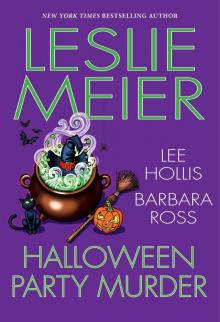 Halloween Party Murder
Halloween Party Murder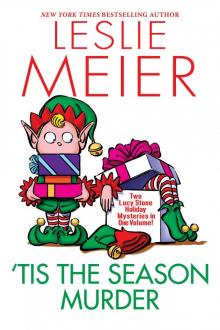 'Tis the Season Murder
'Tis the Season Murder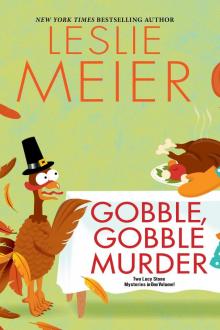 Gobble, Gobble Murder
Gobble, Gobble Murder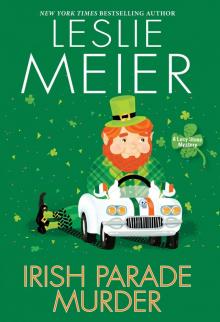 Irish Parade Murder
Irish Parade Murder Bake Sale Murder
Bake Sale Murder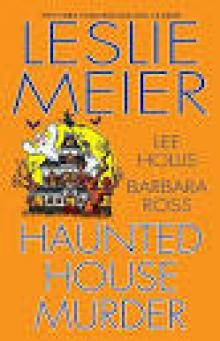 Haunted House Murder
Haunted House Murder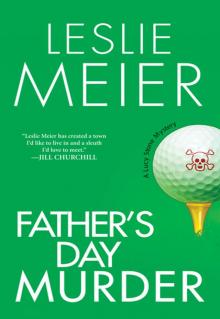 Father’s Day Murder
Father’s Day Murder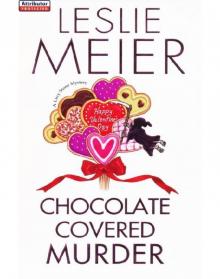 Chocolate Covered Murder
Chocolate Covered Murder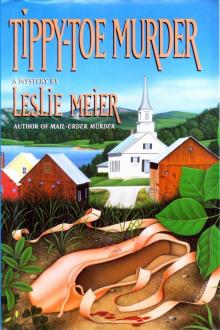 Tippy Toe Murder
Tippy Toe Murder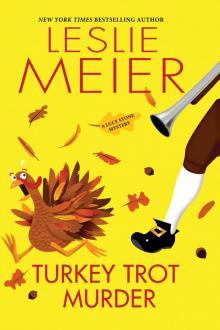 Turkey Trot Murder
Turkey Trot Murder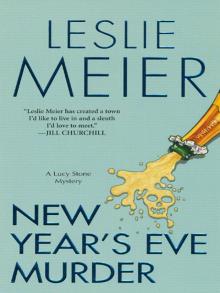 New Year's Eve Murder
New Year's Eve Murder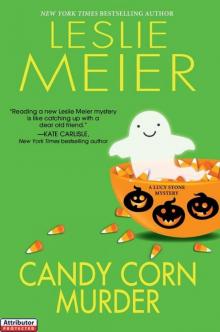 Candy Corn Murder
Candy Corn Murder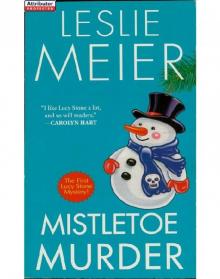 Mistletoe Murder
Mistletoe Murder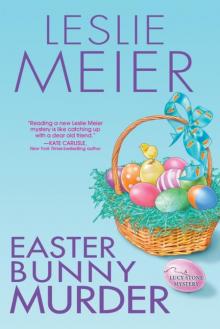 LStone 20 - Easter Bunny Murder
LStone 20 - Easter Bunny Murder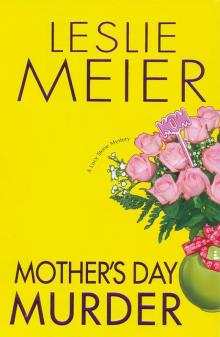 Mother's Day Murder
Mother's Day Murder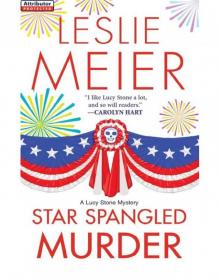 Star Spangled Murder
Star Spangled Murder Silver Anniversary Murder
Silver Anniversary Murder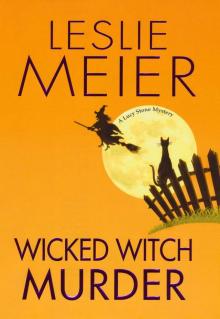 Wicked Witch Murder
Wicked Witch Murder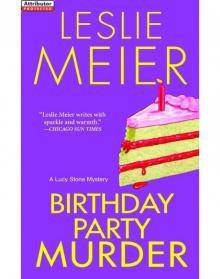 Birthday Party Murder
Birthday Party Murder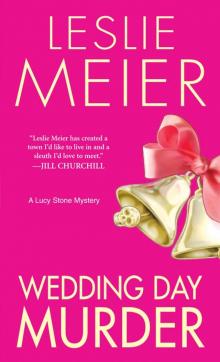 Wedding Day Murder
Wedding Day Murder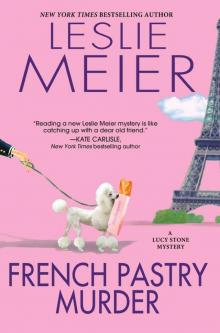 French Pastry Murder
French Pastry Murder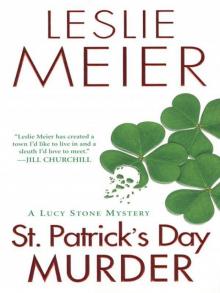 St. Patrick's Day Murder
St. Patrick's Day Murder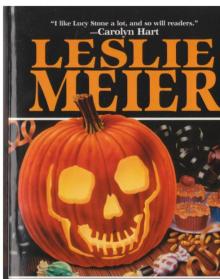 Trick or Treat Murder
Trick or Treat Murder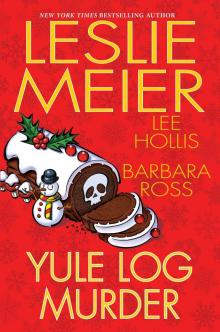 Yule Log Murder
Yule Log Murder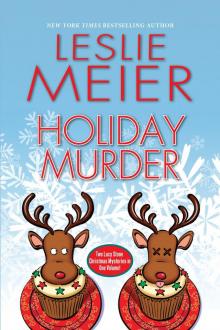 Holiday Murder
Holiday Murder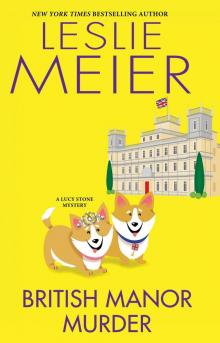 British Manor Murder
British Manor Murder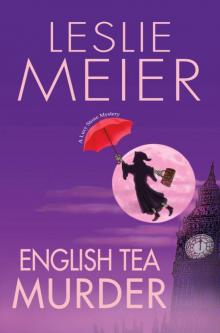 English Tea Murder
English Tea Murder